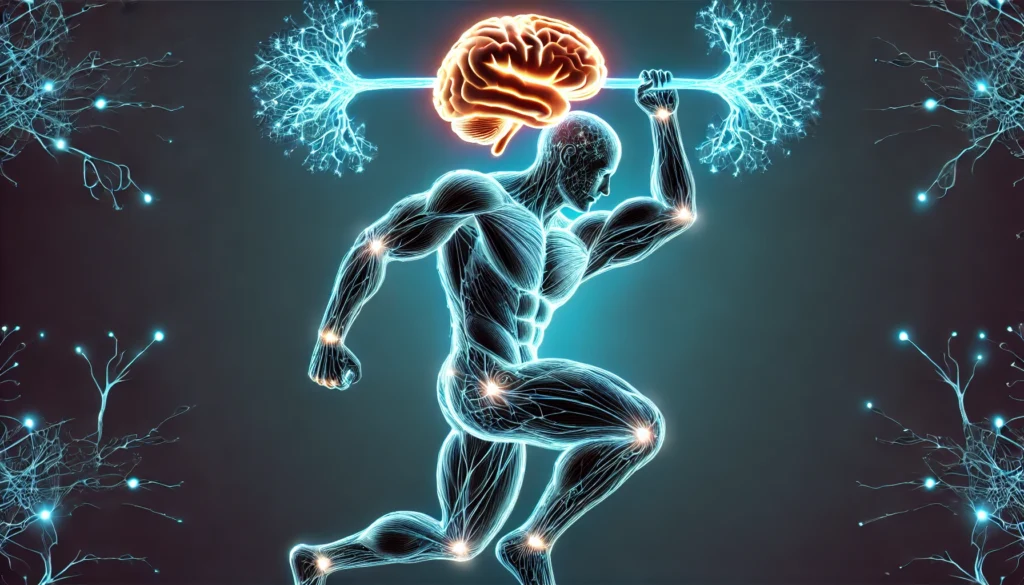In our fast-paced world, the drive to optimize mental acuity is stronger than ever. The burgeoning industry of brain training apps caters to this demand, with Elevate standing out as a prominent contender. But does Elevate actually work to enhance cognitive skills? This article delves into the nuances of brain training, evaluates the efficacy of Elevate, and compares it to its competitor, Lumosity, providing a comprehensive review for those seeking to boost their mental faculties.
You may also like: Boost Your Mind: Top Brain Games
Understanding Cognitive Skills
To grasp the potential benefits of Elevate, it is essential to first understand what cognitive skills entail. Cognitive skills are the mental capabilities we use to learn, remember, reason, and pay attention. They are critical for processing new information and solving problems.
Defining Cognitive Skills
Cognitive skills encompass a wide range of mental processes. These include abilities such as perception, memory, decision-making, and problem-solving. Each skill plays a vital role in how we interact with the world and respond to challenges.
These skills are not static; they can be developed and honed over time. The adaptability of cognitive skills is what makes brain training apps appealing, as they promise to enhance these abilities through targeted exercises.
Importance in Daily Life
Cognitive skills are fundamental to everyday functioning. They influence how we manage tasks, communicate, and make decisions. For instance, strong memory skills enable us to recall important information, while effective problem-solving skills help us navigate complex situations.
In the workplace, cognitive skills are particularly crucial. They affect productivity, efficiency, and the ability to learn new tasks. Enhancing these skills can lead to better job performance and career advancement.
Factors Affecting Cognitive Abilities
Several factors can impact cognitive abilities. Age is a significant determinant, with cognitive decline often occurring in older adults. However, lifestyle choices, such as diet, exercise, and mental engagement, also play a critical role.
Stress and mental health conditions can adversely affect cognitive skills. High stress levels can impair concentration and memory, while conditions like depression and anxiety can impact decision-making and problem-solving abilities. Understanding these factors is essential for those looking to enhance cognitive skills through brain training apps.
The Role of Brain Training Apps
Brain training apps like Elevate aim to enhance these cognitive skills through a series of targeted exercises. These apps typically focus on improving attention, memory, problem-solving, and linguistic abilities. But can playing these “mind games” translate into tangible cognitive improvements in real life?
How Brain Training Works
Brain training apps utilize games and exercises designed to challenge specific cognitive skills. These activities are often based on principles of neuroplasticity, the brain’s ability to reorganize itself by forming new neural connections.
The idea is that by regularly engaging in these exercises, users can strengthen their cognitive abilities. For example, memory games may involve recalling sequences or patterns, thereby enhancing short-term and working memory.
Types of Cognitive Exercises
Different apps focus on various types of cognitive exercises. Some prioritize linguistic skills, offering activities like vocabulary building and reading comprehension. Others target numerical abilities, providing math puzzles and problem-solving tasks.
Attention and focus are also common targets, with exercises designed to improve concentration and reduce distraction. By engaging with a variety of these exercises, users can work on multiple cognitive skills simultaneously.

Real-world Applications
While brain training apps offer engaging and challenging exercises, the key question is whether these benefits extend to real-world applications. Critics argue that improvements in game performance do not always translate to enhanced cognitive function outside the app.
However, proponents suggest that regular use of these apps can lead to better cognitive health. Activities that stimulate the brain, even in a game format, can contribute to overall mental agility and resilience.
The Science Behind Elevate
Elevate, launched in 2014, is a brain training app designed to boost productivity, earning power, and self-confidence through cognitive training. It offers a plethora of games tailored to enhance skills in reading, writing, speaking, and math. But how does it stack up scientifically?
The Research on Brain Training
The scientific community is divided on the efficacy of brain training apps. Some studies suggest that these apps can lead to improvements in specific cognitive tasks. However, the critical question remains whether these improvements transfer to everyday cognitive functioning.
Studies Supporting Brain Training
Several studies have highlighted potential benefits of brain training apps. Research indicates that consistent use can lead to improvements in specific cognitive domains, such as memory and processing speed.
One study found that participants using brain training apps showed increased brain activity in areas associated with memory and attention. These findings suggest that brain training can have a positive impact on cognitive functions, at least in the short term.
Transferability of Skills
A major point of contention is the transferability of skills learned through brain training apps to real-world situations. While users may experience improvements in tasks within the app, translating these gains to everyday life remains challenging.
Critics argue that the skills developed are often context-specific, meaning they do not easily apply outside the app’s environment. This limitation raises questions about the true efficacy of brain training for broad cognitive enhancement.
Long-term Benefits
Long-term studies on brain training apps are limited. While some research suggests potential benefits, these are often short-lived and decrease once the training stops. Continuous engagement is essential to maintain any gains achieved through these apps.
Further research is needed to determine the long-term impacts of brain training on cognitive health. Understanding these effects is crucial for assessing the true value of apps like Elevate in promoting cognitive enhancement.
Evidence Supporting Elevate
A study published in the journal “Neuropsychology” found that participants who engaged with brain training apps, including Elevate, showed improvements in working memory and processing speed. However, the degree to which these gains transferred to untrained tasks varied.
Specific Cognitive Gains
Elevate has been associated with improvements in specific cognitive areas. Users often report enhanced reading comprehension, faster mental arithmetic, and improved verbal fluency. These gains can be attributed to the app’s targeted exercises that challenge these skills.
The app’s design encourages consistent practice, which is crucial for cognitive enhancement. By focusing on specific areas, Elevate allows users to develop particular skills, potentially leading to noticeable improvements in these domains.
User Testimonials and Experiences
User testimonials provide valuable insights into Elevate’s effectiveness. Many users report feeling more mentally agile and confident after regular use. These subjective experiences, while not scientifically rigorous, suggest potential cognitive benefits.
Some users have noted enhanced productivity and better performance in academic or professional tasks. These anecdotal reports highlight the app’s potential to impact users’ lives positively, even if scientific evidence remains mixed.
Comparing Studies and Results
When comparing studies on brain training apps, results can vary significantly. Some research supports the efficacy of apps like Elevate, while others find minimal benefits. This discrepancy underscores the complexity of measuring cognitive improvements.
Differences in study design, sample size, and methodology can contribute to varying results. It is essential to consider these factors when evaluating the effectiveness of brain training apps, as they influence the conclusions drawn from research.
Criticisms and Limitations
Conversely, a report by the Stanford Center on Longevity questioned the effectiveness of brain training programs, arguing that there is insufficient evidence to support claims of generalized cognitive enhancement. Critics point out that improvements may be limited to the specific tasks practiced within the app, without broader cognitive benefits.
Lack of Generalization
One of the primary criticisms of brain training apps is the lack of generalization of skills. While users may excel in app-based tasks, these improvements do not necessarily translate to everyday cognitive abilities. This limitation questions the broader applicability of brain training.
Critics argue that the cognitive gains achieved are often restricted to the app’s specific exercises. For example, improving memory through app-based games may not enhance one’s ability to remember details in real-life situations.
Scientific Skepticism
The scientific community remains skeptical about the long-term benefits of brain training apps. Some researchers point out that the studies supporting these apps often have methodological flaws, such as small sample sizes or lack of control groups.
Skepticism arises from the limited evidence supporting generalized cognitive enhancement. While apps like Elevate show promise, more rigorous research is needed to substantiate their claims of broad cognitive benefits.
Over-reliance on Apps
Another criticism is the potential over-reliance on brain training apps for cognitive enhancement. Users may neglect other important aspects of cognitive health, such as physical exercise, social interaction, and mental stimulation from diverse activities.
Relying solely on apps like Elevate can lead to a narrow approach to cognitive health. A balanced and holistic strategy that incorporates various elements is essential for achieving optimal cognitive function and overall well-being.

Comparisons of Cognitive Impact
While Elevate and Lumosity both aim to boost cognitive abilities, their approaches differ. Elevate focuses on language and math skills, while Lumosity offers a broader range of exercises targeting various cognitive domains.
Users have reported improvements in tasks directly related to the exercises practiced within each app. However, the transferability of these gains to real-world situations remains uncertain, highlighting the need for further research.
Specific Skill Enhancement
Both apps have shown potential in enhancing specific skills. Elevate users often report improved reading comprehension and mental arithmetic, while Lumosity users note gains in memory and attention. These targeted benefits can be valuable for users seeking to strengthen particular cognitive areas.
The apps’ effectiveness in specific domains suggests that users can achieve noticeable improvements in these areas with consistent use. However, the broader impact on overall cognitive function is still debated.
Platform Availability
Both apps are accessible on major platforms, including iOS and Android. This wide availability ensures that users can access brain training exercises regardless of their device preference. The ease of access contributes to the apps’ popularity and user base growth.
Platform compatibility is crucial for reaching a diverse audience. By offering their services on multiple platforms, Elevate and Lumosity maximize their reach and impact.
Subscription Benefits and Features
Premium subscriptions provide access to a wider range of exercises and features. Elevate’s subscription includes personalized training plans, progress tracking, and exclusive content. These benefits enhance the user experience and contribute to cognitive enhancement.
Users seeking a comprehensive brain training experience may find value in subscribing to premium plans. The additional features offer a more in-depth and tailored approach to cognitive development.
Is Elevate Worth It?
The question “Is Elevate worth it?” hinges on individual expectations and goals. For those seeking to engage in mentally stimulating activities and enhance specific cognitive skills, Elevate offers a structured and enjoyable platform. However, if one’s goal is to achieve broad cognitive enhancement, it is essential to approach brain training apps with realistic expectations.
Aligning Expectations with Reality
Understanding what brain training apps can and cannot achieve is crucial. Users should align their expectations with the app’s capabilities, focusing on enhancing specific skills rather than expecting broad cognitive transformation.
By setting realistic goals, users can avoid disappointment and appreciate the incremental benefits of regular brain training. This approach fosters a positive experience and maximizes the app’s potential impact.
Evaluating Personal Cognitive Goals
Before using Elevate, users should evaluate their cognitive goals. Are they looking to improve memory, language skills, or mathematical abilities? Identifying these goals helps users tailor their training and measure progress effectively.
Understanding one’s cognitive strengths and weaknesses is essential for setting achievable goals. This self-awareness empowers users to focus on areas that require improvement, enhancing the effectiveness of brain training.
Balancing Brain Training with Other Activities
For optimal cognitive health, users should balance app-based training with other activities. This includes physical exercise, social interaction, and diverse mental challenges. A holistic approach ensures comprehensive cognitive development and overall well-being.
Brain training apps should complement, not replace, other cognitive activities. By integrating Elevate into a broader cognitive health strategy, users can achieve a well-rounded approach to mental enhancement.
Practical Advice for Users
For optimal results, users should incorporate brain training apps as part of a holistic approach to cognitive health. This includes maintaining a balanced diet, regular physical exercise, adequate sleep, and engaging in diverse cognitive activities beyond app-based exercises.
Integrating Brain Training into Daily Life
Incorporating brain training into daily routines can enhance its effectiveness. Setting aside a specific time each day for Elevate ensures consistency and commitment, which are crucial for cognitive improvement.
Users should view brain training as a regular mental workout, similar to physical exercise. This mindset encourages discipline and dedication, leading to more significant cognitive gains.
Complementary Activities for Cognitive Health
A balanced lifestyle is essential for optimal cognitive health. Alongside brain training, users should engage in activities that stimulate the mind, such as reading, puzzles, and learning new skills.
Physical exercise, adequate sleep, and a nutritious diet also contribute to cognitive well-being. By adopting a holistic approach, users can support their brain health and maximize the benefits of apps like Elevate.
Managing Expectations and Progress
Managing expectations is crucial for a positive brain training experience. Users should set achievable goals and monitor their progress over time. Celebrating small victories can boost motivation and reinforce commitment to the training program.
While significant cognitive transformation may take time, consistent effort can lead to noticeable improvements. By focusing on gradual progress, users can maintain enthusiasm and continue their cognitive development journey.

Future Implications of Brain Training
As technology evolves, the future of brain training holds exciting possibilities. Advancements in artificial intelligence and neurotechnology may lead to more personalized and effective cognitive training programs. Further research is necessary to understand the long-term impacts and potential of these tools in cognitive enhancement.
Technological Advancements and Innovations
Emerging technologies, such as artificial intelligence and machine learning, have the potential to revolutionize brain training. These innovations can lead to more personalized and adaptive training programs that cater to individual cognitive needs.
AI-powered apps could analyze user performance and adjust exercises in real-time, providing a tailored experience that maximizes cognitive benefits. As technology advances, brain training apps may become more effective and accessible.
Research and Development in Cognitive Training
Ongoing research is essential to understand the long-term effects of brain training. Studies focusing on the neuroplasticity and adaptability of the brain can provide valuable insights
Further Reading:
Does ‘Brain Training’ Actually Work?
Brain Training Apps that Really Work
Elevate Review: Brain Training That Works
Important Note: The information contained in this article is for general informational purposes only, and should not be construed as health or medical advice, nor is it intended to diagnose, prevent, treat, or cure any disease or health condition. Before embarking on any diet, fitness regimen, or program of nutritional supplementation, it is advisable to consult your healthcare professional in order to determine its safety and probable efficacy in terms of your individual state of health.
Regarding Nutritional Supplements Or Other Non-Prescription Health Products: If any nutritional supplements or other non-prescription health products are mentioned in the foregoing article, any claims or statements made about them have not been evaluated by the U.S. Food and Drug Administration, and such nutritional supplements or other health products are not intended to diagnose, treat, cure, or prevent any disease.


